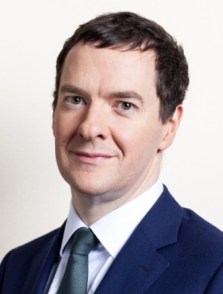Whatever indiscretion the BBC Breakfast presenter Naga Munchetty committed, what its former head, Michael Grade, has done is much worse.

Miss Munchetty went beyond her remit by describing President Trump as racist for the advice he proffered to some hard-left congresswomen: “go back to the totally broken and crime-infested places from which they came”.
Herself being of off-white heritage, Miss Munchetty explained her outburst on air by her experience of having had the same thing said to her. That left a deep emotional trauma because everything does these days.
But I understand how she feels: Miss Munchetty comes from Streatham, an area that may merit similar descriptors to those Trump used, and the prospect of returning there from the stratospheric heights of her present status must be nightmarish.
No wonder she described herself as “absolutely furious”, adding that many other people must feel the same way – even, one assumes, those who don’t come from Streatham.
At first, the BBC censured Miss Munchetty for compromising journalistic impartiality, for which the Beeb is so widely known among Guardian readers.
Following an outcry from all the predictable quarters, Auntie then rescinded its reprimand because, when all is said and done, calling anybody a racist is everyone’s sacred right.
Personally, I would have rescinded it for another reason: I tend to allow much latitude to women who look as gorgeous as Miss Munchetty, even though I thereby brand myself as a sexist and every other -ist and -phobe in our ever-expanding glossary.
Once I was a guest on her show and found her charming and courteous, even though she charmingly and courteously shut me up every time I tried to suggest that the main purpose of prison is not to rehabilitate but to punish.
Now Lord Gates, true to the ideals the BBC holds dear, has written an article full of compassionate understanding for both Miss Munchetty and her employer. Using the rigorous intellectual standards one expects from our media executives, he unequivocally supported Miss Munchetty, the BBC for censuring her and, again, the BBC for rescinding the censure.
“The BBC has a paramount duty to be impartial,” he explains. However, “It has always been the case… that racism was not covered by the impartiality guidelines, because there is no defence for racial discrimination: it is not to be treated as a matter of opinion.”
Now, these two sentences amount to one excellent reason to remove the BBC’s charter and let the network fend for itself in the rough-and-tumble of commercial broadcasting.
To begin with, anyone who thinks the BBC unbiased must have been enjoying a lifelong sabbatical in the outer reaches of our galaxy. The Beeb is about as impartial on every key issue as Lenin was on capitalists, Hitler on Jews or Crosland on private education.
Some 90 per cent of its staffers vote Labour or another left-wing party at every election, and the only newspaper that enjoys the riches of BBC recruitment advertising is The Guardian, our leftmost broadsheet.
Thus, if the Beeb had an opening for an old, truculently conservative writer of Russian descent, I wouldn’t know about it because I never sully my hands with that awful publication.
The odd token Tory apart, the network’s talking heads consistently take the liberal position on Brexit, climate change, abortion, immigration, the NHS – you name it.
If you didn’t know that the BBC is staffed with Labour voters, you’d guess it within a nanosecond of watching any of its talk shows or, for that matter, news programmes (bias can skew not only the coverage but also the selection of the news items to be covered).
That much is so evident it’s barely worth discussing. What is, however, noteworthy is Lord Grade’s it-goes-without-saying statement that only racism isn’t covered by the impartiality guidelines.
That racism, properly defined, is reprehensible indeed goes without saying. However, the parenthetic qualification is necessary because, like all modern -isms and -phobias, it’s often defined too loosely and broadly.
The definition goes well beyond racial discrimination or supremacism; it extends, for example, to a simple statement that races may be different or that some are disproportionately represented in the prison population. Sometimes the word is used simply to demonise any conservative, even one who has never opined on race in his life.
Such perversions apart, racism qua racism is a mortal sin. But surely it’s neither the only nor even the worst one. Why should it enjoy the exclusive status of the sole mortal sin not covered by BBC impartiality guidelines, such as they are?
A communist politician in all but name may go on a BBC show and froth at the mouth about everything that defines Britain, monarchy, free enterprise, law enforcement, defence, laws, whatever, and the BBC is duty-bound to stay objective.
He may then describe the entire history of the country as nothing but oppression, violence, racism and any other -ism or –phobia, and a BBC journalist must remain soft-spoken, non-judgemental and poker-faced.
But branding the leader of a friendly nation as racist – with or without reason – is par for the course. No partiality anywhere in sight, not as defined by the BBC.
If Lord Grade could think before writing, he wouldn’t have led the BBC, nor could he have been employed there in even a lesser capacity. Because, if the BBC were led by honest, serious thinkers, it wouldn’t be the liberal flagship it undoubtedly is.








